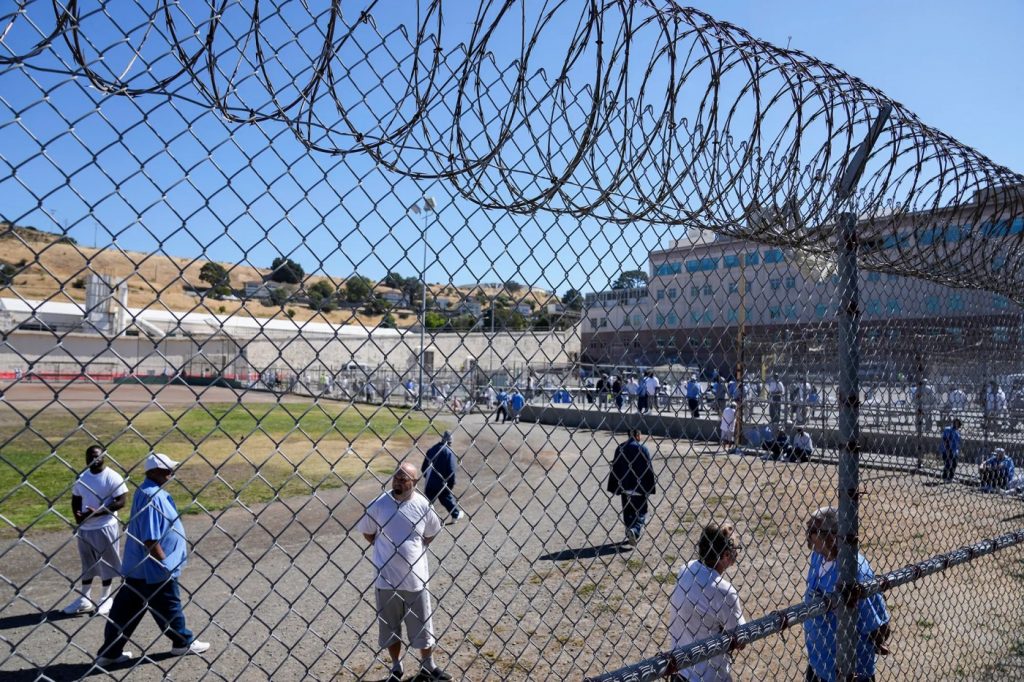Californians are voting this election on Proposition 6, which prioritizes public safety, rehabilitation and our limited taxpayer resources over prison slave labor.
Proposition 6 amends the state Constitution to remove a provision that authorizes jails and prisons to impose prison slave labor as punishment and even discipline incarcerated people who decline — even if it’s to participate in rehabilitative programming that makes them less likely to reoffend upon their release.
Currently, the California Constitution prohibits slavery, and “involuntary servitude is prohibited except to punish crime.” Proposition 6 would eliminate the exception, adding a provision that “the Department of Corrections shall not discipline any incarcerated person for refusing a work assignment.”
My experience, and that of the thousands of incarcerated people leaving prison every year, is a testament to why it’s critical to vote yes on Proposition 6.
When I was 16 years old, I was sentenced to 31 years to life. Over the next 25 years, I worked about every prison job there was. When I decided to turn my life around and tried to attend a victim-impact class, I wasn’t allowed because the class was during my work hours.
Had I put down that broom and attended the victim-impact class to learn about the ripple effect of the harm I had caused, I would have been disciplined, which could have cost me up to a 15-year denial by the parole board. You read that right: I would have been punished simply because I wanted to better myself by learning about the impact of my behavior.
Today there are approximately 90,000 incarcerated people and only 40,000 jobs within the California Department of Corrections and Rehabilitation (CDCR). Accordingly, there’s no shortage of incarcerated people seeking to work, as most incarcerated people prefer it to long hours locked up in a cell.
Failure to pass Proposition 6 and the continued prioritization of forced prison labor over rehabilitation jeopardizes safety across California.
A recent report from CDCR found lower recidivism rates for those who earned credits from the completion of rehabilitative programming. Specifically, those who had any type of programming credit had substantially lower conviction rates than people with no enhanced credit earnings. With 95% of incarcerated people eventually returning to their communities, the evidence is overwhelming; when CDCR prioritizes rehabilitation over exploitation, we all win.
Today, we spend an average of $133,000 per year per person we incarcerate, and most who leave prison reoffend within three years — meaning we’re wasting billions annually on a failing prison system. That’s why it’s so important to pass Proposition 6 to amend our state Constitution to end “involuntary servitude,” a form of slavery that prioritizes forced labor in prisons over rehabilitation, public safety and our limited taxpayer dollars.
No one should be put in solitary confinement, deprived of seeing their children or punished with additional months or years inside prison simply because they choose rehabilitation over prison slave labor. They should be supported when they want to change their way of thinking and behaving, heal from childhood traumas, recover from addictions and learn about the ripple effect of victimization.
Ask yourself: Are you better off if incarcerated people have been rehabilitated and are less likely to reoffend when they return to their communities — or if they’ve made license plates?
Had I been able to attend that victim-impact class without the threat of punishment for missing my work assignment, I could have started my healing journey of accountability a lot sooner.
Ending slavery in California is a public-safety imperative that is long overdue, and now is the time for us to rid our state of the evil institution of slavery once and for all. Vote yes on Proposition 6.
John Vasquez is policy and legal services manager of Communities United for Restorative Youth Justice.


